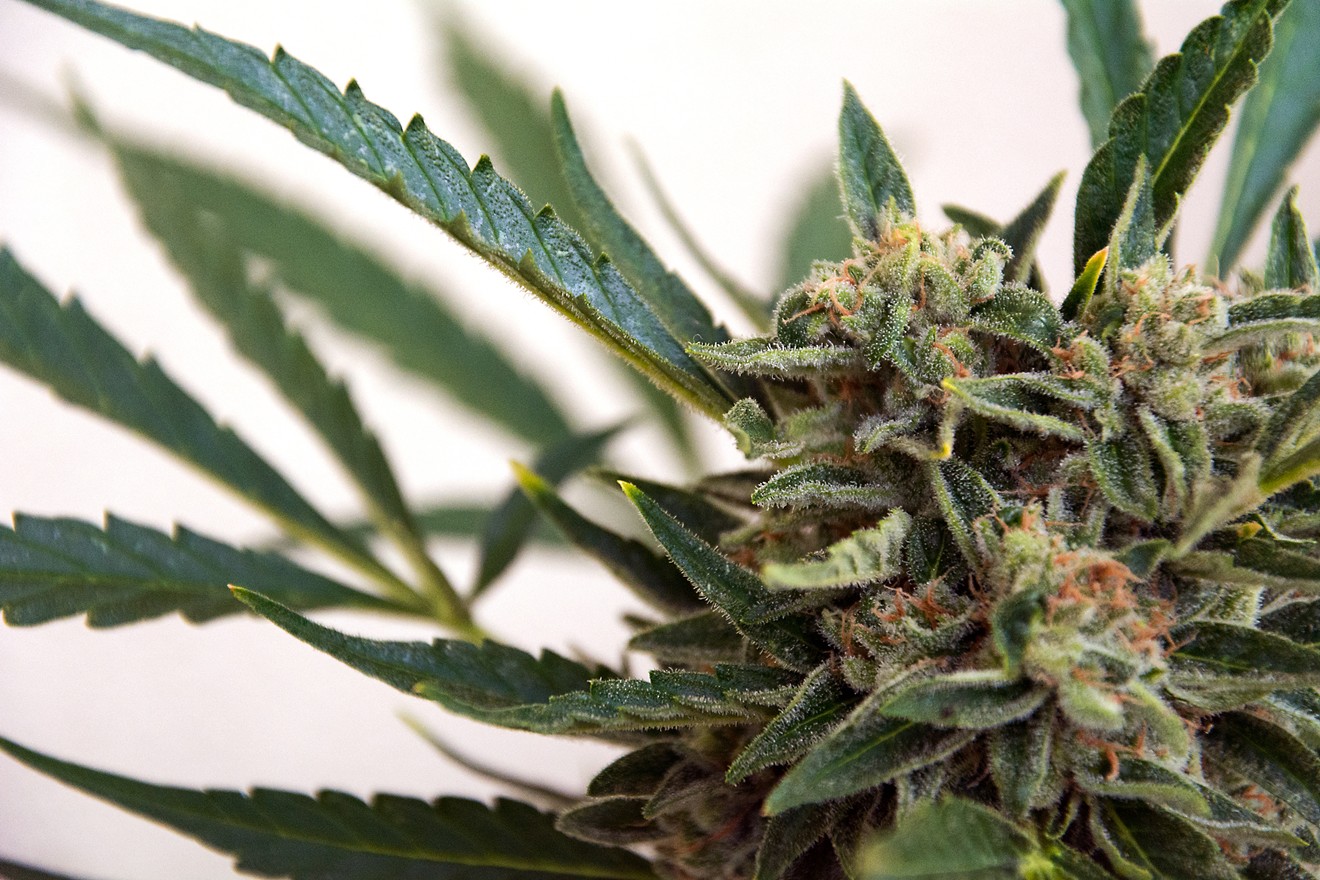But on Thursday, leaders of the all-volunteer effort announced they had failed to obtain enough signatures to make the 2018 ballot.
This was the group's third time trying to legalize marijuana for all adults in Arizona. Spokesman and chief organizer Dave Wisniewski called the effort Safer Arizona's "most successful grassroots campaign," adding that the effort had many successes.
With its radical approach to legalization and previous efforts to sink a separate legalization measure for 2016, Safer Arizona never generated much support from the mainstream cannabis community, and essentially no support from medical-marijuana dispensaries.
The measure called for a full repeal of current marijuana laws, unlimited possession, reduced penalties for black-market sales, nearly unlimited cultivation by people and businesses, and nearly unregulated commercial sales and cultivation, even in residential neighborhoods.
The group claimed it had collected 75,000 signatures of registered voters, which was well short of the roughly 150,000 it needed to make the ballot. Leaders originally had aimed to get more than 220,000 signatures to provide a cushion for the inevitable culling of some invalid petitions.
However, it remained unclear on Friday how many signatures the group really collected. No signatures were turned in to the state because the minimum hadn't been reached. A video made by the group on Thursday at the State Capitol shows what appears to be 12 boxes of signatures. Typically, such boxes hold 3,000 to 5,000 petition signatures each.
In any case, Safer Arizona — which has a high-profile Facebook site with thousands of followers — will continue as a cannabis education and activism group. And according to Wisniewski, members are seeking to heal the rifts with other pro-cannabis groups and people, and will focus on assisting a possible legalization measure for 2020.
"I don't want to have a repeat of 2016 where we had the division of community so bad," he said.

Wisniewski said Safer Arizona has images of its 75,000 signatures, but a video on the group's site from its visit to the State Capitol on Friday appeared to show fewer than that.
Safer Arizona video
Prop 205 failed by about 3 percent of the vote.
After Safer Arizona filed its latest initiative in February 2017, Demitri Downing of the Marijuana Industry Trade Association said of the group's leaders, "They are pretty hard-headed ... I gave up trying to convince them to incorporate mainstream ideas and industry acknowledgment. You cannot just destroy an industry. That ain't cool."
Wisniewski said the group is contemplating an alliance with the Arizona Dispensary Association, which has been trying to negotiate with state leaders about changes to the medical-marijuana law. The ADA appears to be interested in drafting an adult-use legalization measure for 2020, and it wants to incorporate the interests of Safer Arizona members, he said.
"If we continue these good relations, we will end up with an industry-consumer compromise that is better than 205, and that we can get behind as a community," he said.
Yet Wisniewski said many Safer Arizona members want to move cautiously on any measure promoted by the less-ardent cannabis reformers. Members will insist that any new measure must include personal cultivation rights and an end to felony prosecutions for cannabis, he said.
On its Facebook site, the group writes that the ADA will want to preserve the "oligarchic" standard, meaning it won't want any, or many, new cultivators or retailers to gain access to Arizona's potentially legal cannabis market with the 2020 ADA plan, which still in its very early stages of planning. The ADA didn't immediately return a message about Wisniewski's statements.
Safer Arizona is also contemplating whether to move forward with its own initiative for 2020, its website states.
Mikel Weisser, director of the state's NORML chapter, said he appreciates that Safer Arizona "keeps the spirit of reform alive," even though he's had many disagreements with Wisniewski and other group members in the past. Joining forces is especially important now, given the Arizona Court of Appeals' recent decision that cannabis extracts aren't covered under the state's medical marijuana law, he said.
Yet Weisser also accused the group of falsely keeping hope alive for its 2018 campaign when its leaders knew that it would fall far short of its goals.
"Since their numbers were so low, I feel they did a disservice to their volunteers by not pulling the plug when the inevitable became obvious," Weisser said.












